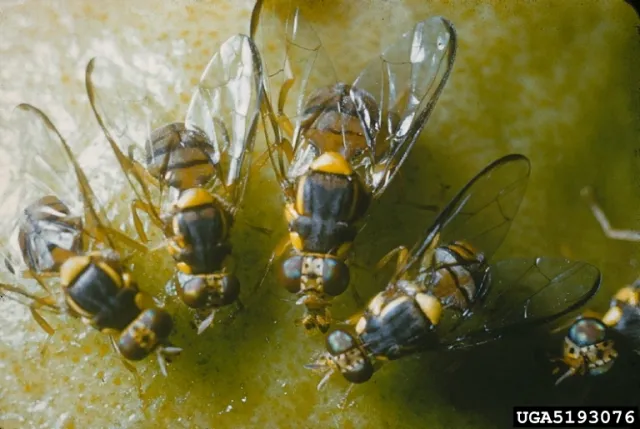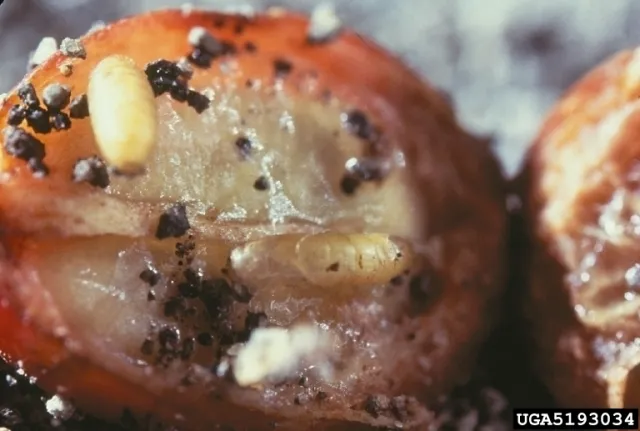In the last two years, California has experienced a surge of invasive fruit fly infestations. Invasive fruit fly outbreaks endanger our state’s agriculture and economy, as well as homegrown fruits and veggies. They can infest many different fruit, nut, and vegetable crops. Adults lay their eggs under the skin of fruit, and their larvae (maggots) feed on the pulp. The resulting damage makes the fruit unfit for human consumption, and large infestations can cause significant crop losses.
These outbreaks prompted the establishment of several quarantines throughout the state. Quarantines trigger restrictions on the movement of fresh produce, which negatively impacts commercial growers. Nearly all the quarantines have since been lifted due to successful eradication efforts. Most recently, the Oriental fruit fly was declared to be eradicated and the quarantine in Orange County was lifted in June of 2025. However, a Mediterranean fruit fly quarantine in Alameda County is still in place.

While the news of lifted quarantines is encouraging, the ongoing threat of new infestations remains. Improperly imported fruit is the most common pathway for fruit fly entry into California. Agricultural officials are asking residents to help keep California free of invasive fruit flies by following these guidelines:
- If you live in a quarantine area, don’t move homegrown produce from your yard, even to share with your neighbors. When it comes to invasive fruit flies, sometimes NOT sharing is caring!
- When travelling, don’t bring agricultural products (fruits, veggies, plants) back with you to California. Visit dontpackapest.com for more information.
- Do not ship or receive any homegrown produce or other natural materials. Learn more at stopinvasivepests.com.
- Buy plants, seeds or other natural materials only from local, licensed nurseries and retailers. To find a licensed plant nursery near you, visit CDFA’s Directory of Licensed Nurseries.
- Cooperate with state and federal agencies if they need to access your property to place traps, inspect plants, conduct necessary treatments, or remove potentially infested produce.
- Inspect your garden for signs of invasive fruit flies or maggots and report any findings to the California Department of Food and Agriculture (CDFA) at 1-800-491-1899, online through CDFA’s pest reporting system, or to your local county agricultural commissioner’s office.


